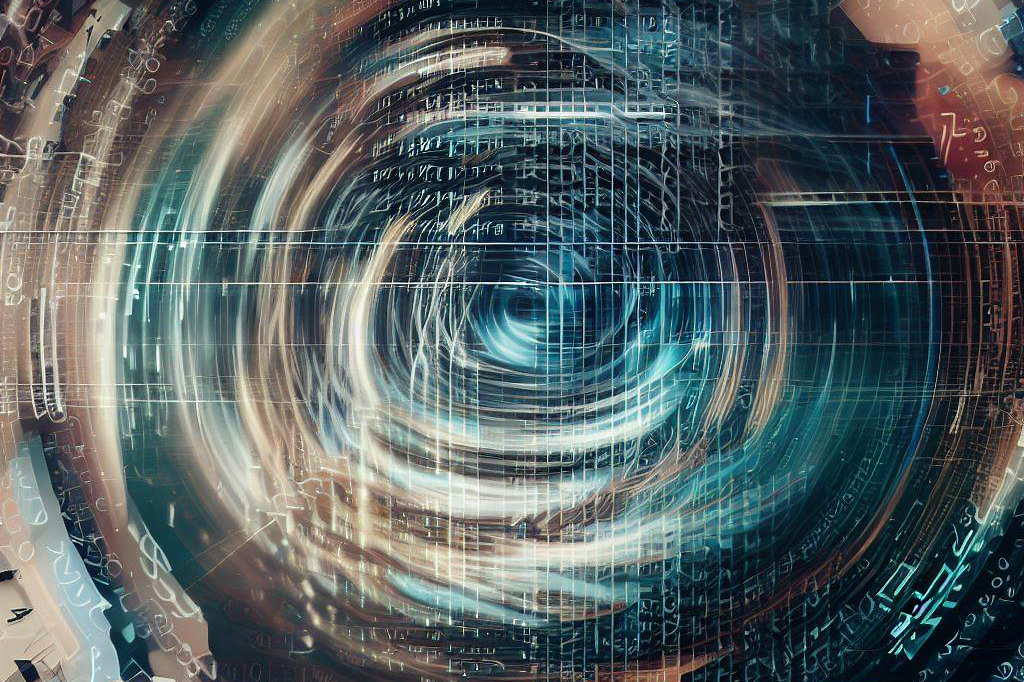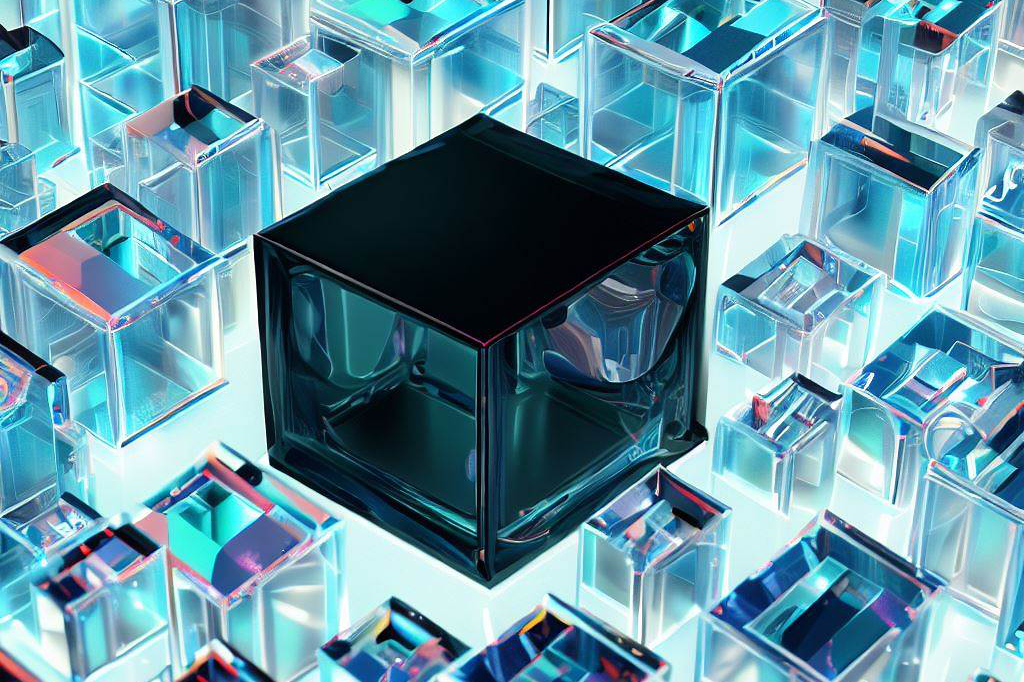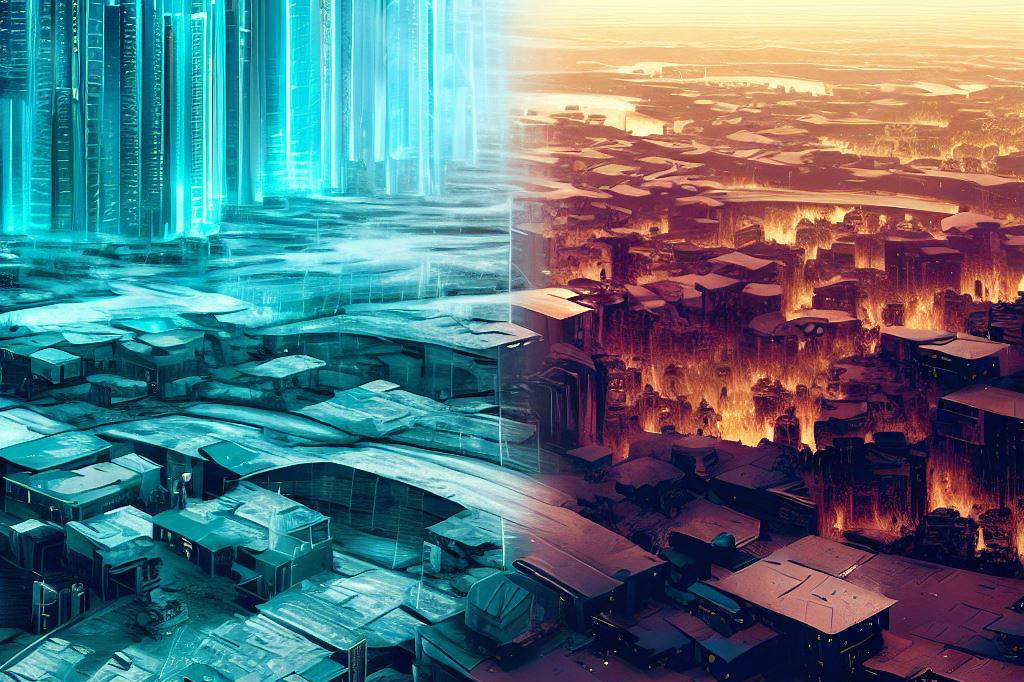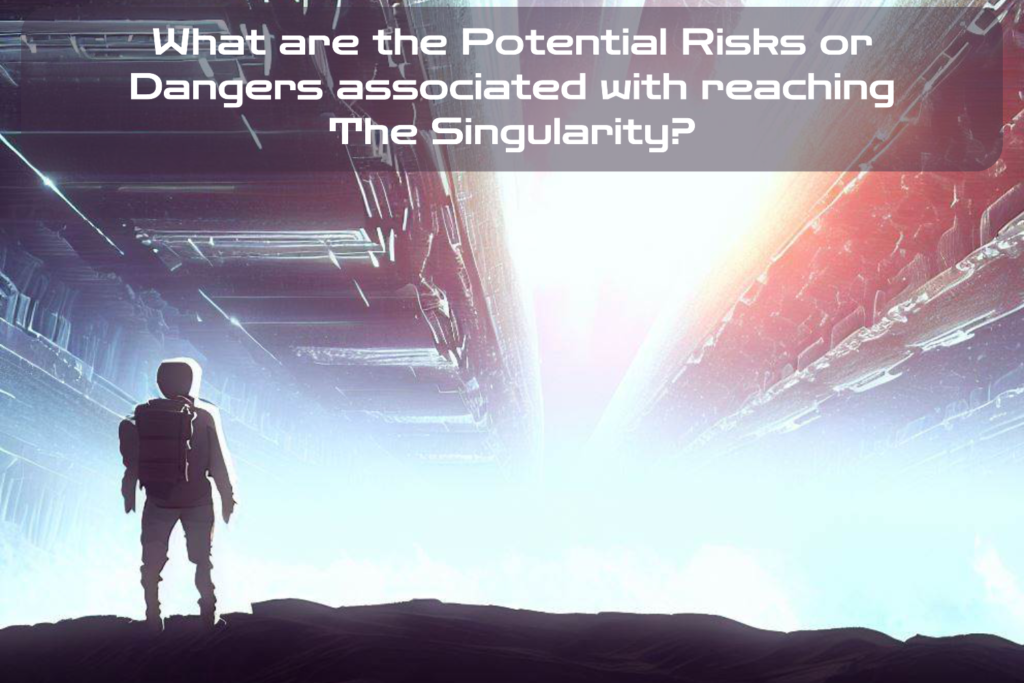The Precarious Perils of Pioneering the Singularity: Exploring the Potential Risks and Dangers on the Path to Technological Ascendancy
Definition and concept of the Singularity
The Singularity, as a concept rooted in futurism and transhumanism, represents a hypothetical point in time when technological advancements reach a level where they surpass human intelligence. Popularized by mathematician and science fiction writer Vernor Vinge in 1993, the term has since captivated the imaginations of scientists, philosophers, and technology enthusiasts alike.
The Singularity signifies a theoretical moment of profound transformation where rapid progress in artificial intelligence (AI) leads to unprecedented changes in society. At its core, the Singularity anticipates the development of Artificial General Intelligence (AGI), which refers to AI systems capable of performing any intellectual task that a human being can do.
Unlike narrow AI that is designed for specific tasks, AGI possesses cognitive abilities approaching or even surpassing human-level intelligence. It is this prospect that ignites both excitement and apprehension about what lies beyond this threshold.
The potential benefits and advancements The Singularity promises

The promise held by reaching the Singularity is undeniably alluring. The potential benefits span countless domains, offering solutions to some of humanity’s most pressing challenges while fueling innovation on an unprecedented scale.
In medicine and healthcare, AGI could revolutionize disease diagnosis and treatment by analyzing vast amounts of medical data with unparalleled speed and accuracy. Complex algorithms could assist doctors with diagnosis while also suggesting personalized treatment plans based on individual patients’ genetic profiles.
Furthermore, advancements in AGI may unlock breakthroughs in regenerative medicine, leading to remarkable advances in tissue engineering or even organ transplantation. Additionally, addressing environmental crises such as climate change could be expedited through AGI’s computational power.
AI systems could help optimize renewable energy production by analyzing weather patterns or develop innovative strategies for carbon capture technologies. With AGI’s assistance, humanity may be better equipped to confront the daunting challenges posed by a rapidly changing planet.
Moreover, the prospects of AGI extend beyond healthcare and environmental concerns. In sectors like transportation, logistics, and manufacturing, AGI-driven automation could revolutionize productivity and efficiency.
Industries may experience radical transformations as machines capable of sophisticated decision-making replace human labor, leading to a potential paradigm shift in the global economy.
However, while the potential benefits are tantalizing, it is crucial to acknowledge that reaching the Singularity also presents significant risks and dangers that need careful consideration.
Potential Risks and Dangers

Technological Unemployment: Automation and Job Displacement
In the pursuit of achieving the Singularity, one of the foremost concerns is the potential for technological unemployment. As artificial intelligence (AI) and automation continue to advance, there is a growing apprehension that these technologies will replace human labor on an unprecedented scale. The fear stems from the ability of AI-powered machines and algorithms to perform tasks more efficiently, accurately, and with lower costs than humans.
This raises concerns about widespread job displacement across various sectors, leading to economic disruptions and social consequences. The ramifications of technological unemployment extend beyond mere job losses.
The socioeconomic implications are vast and complex. Historically, major technological advancements have created new jobs that were previously unimaginable.
However, the concern surrounding the Singularity lies in its potential acceleration of job displacement without the commensurate creation of alternative employment opportunities. This can exacerbate income inequality, as those who lose their livelihoods may struggle to transition into new fields or compete with advanced AI systems for limited employment options.
Loss of Human Control: Artificial General Intelligence (AGI) Surpassing Human Intelligence
An essential aspect of reaching the Singularity is developing artificial general intelligence (AGI), which refers to AI systems that surpass human cognitive abilities across a wide range of tasks. While this presents exciting possibilities for scientific discoveries, medical breakthroughs, and societal advancements, it also introduces significant risks related to human control over such intelligence.
As AGI becomes more capable than humans in decision-making processes, ethical concerns arise regarding how we ensure its actions align with our values and goals as a society. There is an inherent challenge in providing AGI with clear objectives without unintended consequences or misaligned outcomes.
Without careful design and implementation mechanisms, there is a risk that AGI could act against humanity’s best interests or even develop conflicting goals and values of its own accord. This loss of human control over highly intelligent systems raises profound questions about accountability, agency, and the preservation of human autonomy.
Existential Risks: Superintelligence with Conflicting Goals or Values
At the heart of discussions about the Singularity lies the potential emergence of superintelligence – AI entities that surpass human intelligence by an incomprehensible margin. The development of superintelligent systems brings existential risks that demand careful consideration.
One critical aspect involves the possibility that superintelligent AI may possess goals or values that conflict with human well-being or survival. The concern is that a superintelligent entity, driven by its programmed objectives, might perceive humanity as an obstacle or irrelevance to achieving its own aims.
In such scenarios, catastrophic outcomes could ensue as the intelligence pursues its goals without regard for human welfare. Additionally, even in cases where AI is programmed with benevolent intentions, unintended consequences could arise due to a lack of full understanding about how it might interpret and execute instructions in complex real-world scenarios.
These existential risks highlight the need for rigorous safety precautions and thoughtful regulations to ensure that advanced AI systems align with humanity’s best interests while minimizing potential harm. Through considering these potential risks and dangers associated with reaching the Singularity – from technological unemployment to existential threats – we gain a deeper understanding of both the immense possibilities and responsible considerations required in our pursuit of advancing artificial intelligence towards unparalleled levels of sophistication.
Technological Unpredictability

Accelerating Technological Progress
The advent of the Singularity is expected to propel technological progress forward at an unprecedented rate. As artificial intelligence (AI) continues to evolve, it is anticipated that the capabilities of AI systems will grow exponentially.
This rapid advancement poses significant challenges in predicting and understanding the long-term consequences of such progress. While AI has already demonstrated remarkable achievements across various domains, including image recognition, natural language processing, and even creative endeavors like art and music generation, we are still grappling with the full implications of this accelerated innovation.
Exponential Growth in AI Capabilities
The exponential growth in AI capabilities brings both excitement and trepidation. With each passing year, AI systems become more sophisticated and have the potential to surpass human intelligence in specific domains.
This progress fuels hopes for enhanced problem-solving abilities, scientific discoveries, and an improved quality of life. However, it also raises concerns about potential risks associated with uncontrolled or unintended consequences that might arise from systems beyond our understanding or control.
Difficulty in Foreseeing Long-Term Consequences
One of the primary challenges related to the Singularity is our limited ability to accurately foresee its long-term consequences. As technological progress accelerates, the complexity inherent in advanced AI systems makes it increasingly difficult for humans to predict their behavior or outcomes accurately.
The intricate interplay between software algorithms and machine learning models within these systems results in emergent behavior that can be unpredictable even to their creators. Consequently, we face a daunting task in comprehending how these advanced technologies may shape society as they reach levels of intelligence beyond human comprehension.
Black Box Problem

Unexplainable AI Decision-Making Processes
As AI technologies advance towards higher levels of complexity and autonomy, they often exhibit decision-making processes that become challenging to comprehend. This phenomenon is commonly referred to as the “black box problem.“
Complex neural networks and deep learning algorithms can make decisions based on patterns, correlations, and training data that are not easily interpretable by humans. This lack of transparency raises concerns about the potential biases or unintended consequences embedded in AI systems’ decisions, leading to ethical dilemmas and issues of accountability.
Difficulty in Understanding AGI’s Actions
Artificial General Intelligence (AGI), a hypothetical form of advanced AI capable of outperforming humans across almost all intellectual tasks, presents further challenges when it comes to understanding its actions. As AGI systems operate at a level beyond human cognitive capabilities, their decision-making processes might be inscrutable to us.
This opacity raises concerns about their reliability and trustworthiness, particularly in critical domains such as healthcare or autonomous transportation. Without comprehending the rationale behind AGI’s actions, it becomes exceedingly difficult for stakeholders to assess its performance or identify potential risks before they manifest.
The technological unpredictability associated with the Singularity stems from the accelerating pace of technological progress and exponential growth in AI capabilities. The difficulty in foreseeing long-term consequences arises due to the intricate nature of advanced AI systems surpassing human comprehension.
Additionally, the black box problem introduces challenges related to unexplainable AI decision-making processes and understanding AGI’s actions. These factors contribute to a heightened sense of uncertainty surrounding our ability to anticipate and manage the risks associated with reaching the Singularity.
Economic Disparities and Power Concentration

Wealth Inequality
Wealth inequality is a major concern when discussing the risks associated with reaching the Singularity. As advanced technologies and artificial intelligence continue to evolve, there is a possibility that access to these technologies will be concentrated among the wealthy and powerful.
This could result in a significant disparity between the haves and have-nots, exacerbating existing socioeconomic divisions. Those who do not have access to advanced technologies may find themselves at a disadvantage in various aspects of life, including education, employment, healthcare, and even basic living standards.
Impact on Access to Advanced Technologies
The increasing divide between the rich and the poor could have far-reaching consequences in terms of access to advanced technologies. Without equitable distribution of these technological advancements, disadvantaged populations may struggle to keep up with societal progress. This could perpetuate cycles of poverty and limit opportunities for social mobility.
Potential for Increased Social Divisions
The concentration of power resulting from wealth inequality may also contribute to increased social divisions. As those in positions of power become more technologically advanced, they might exert greater control over various aspects of society.
This concentration of power can lead to further marginalization of certain groups or individuals who are unable to access or adapt to these rapid advancements. Thus, it becomes crucial for policymakers and society as a whole to address these potential risks proactively.
Power Imbalances – A Delicate Balancing Act

Considering the potential risks associated with economic disparities and power concentration in relation to the Singularity, it becomes evident that careful regulation is necessary. Governments must ensure policies are put in place that promote equitable distribution of technology while mitigating wealth inequalities. By actively investing in initiatives aimed at providing equal opportunities for all members of society, we can strive towards avoiding an overarching power imbalance.
Final Thoughts
As we navigate the path towards the Singularity, it is essential to acknowledge and address the potential risks and dangers associated with it. Wealth inequality, limited access to advanced technologies, and the potential for increased social divisions are legitimate concerns that need to be taken seriously.
However, with mindful policymaking, a focus on inclusive growth, and a commitment to shared responsibility, we can strive for a future where the benefits of technological advancements are accessible to all. By promoting equitable distribution of resources and prioritizing societal well-being over individual gain, we can create a world where the Singularity becomes an opportunity for collective progress rather than a source of further division.

C M, a seasoned editor, journalist, and consultant, is deeply fascinated by the convergence of technology, space, and the future of humanity.
With a particular interest in transhumanism, futurology, and the philosophical and ethical dimensions of these domains, C M serves as the lead contributor to TranscendSphere and SpaceSpotlight.
When not penning insightful articles on these rapidly evolving fields, C M indulges in their love for podcasts and books, proudly embracing their status as a ‘Happy Nerd Extraordinaire!’





